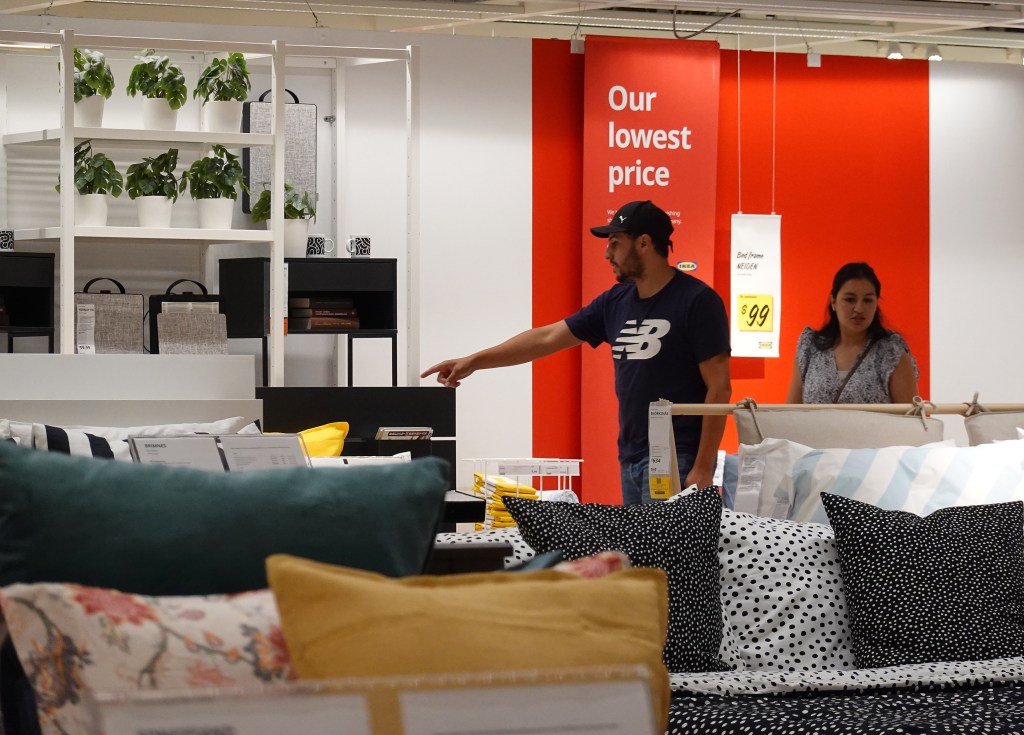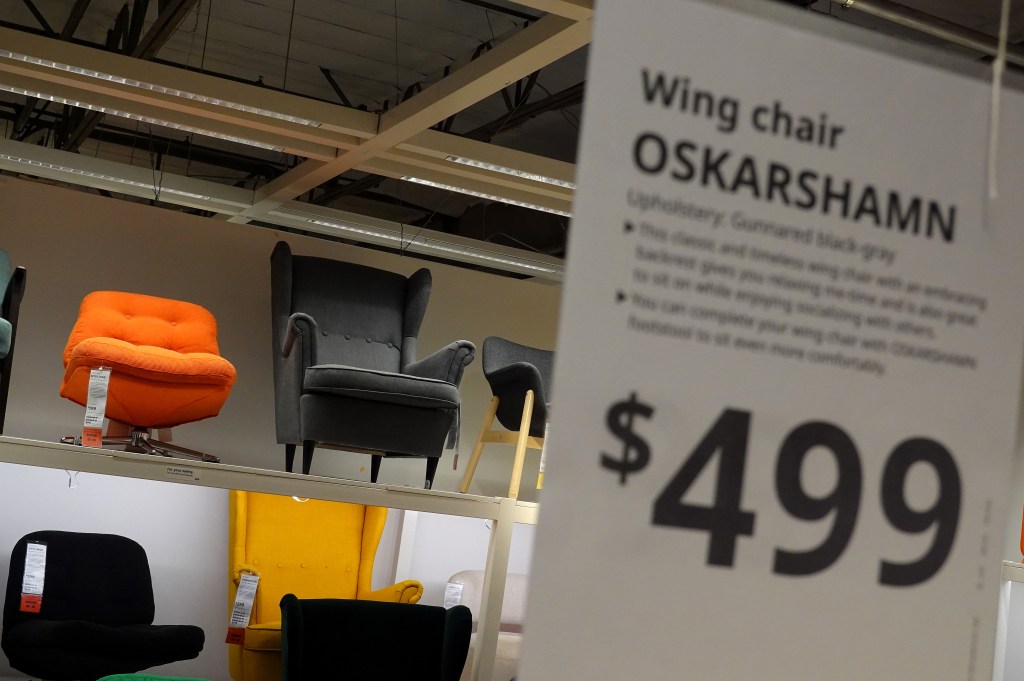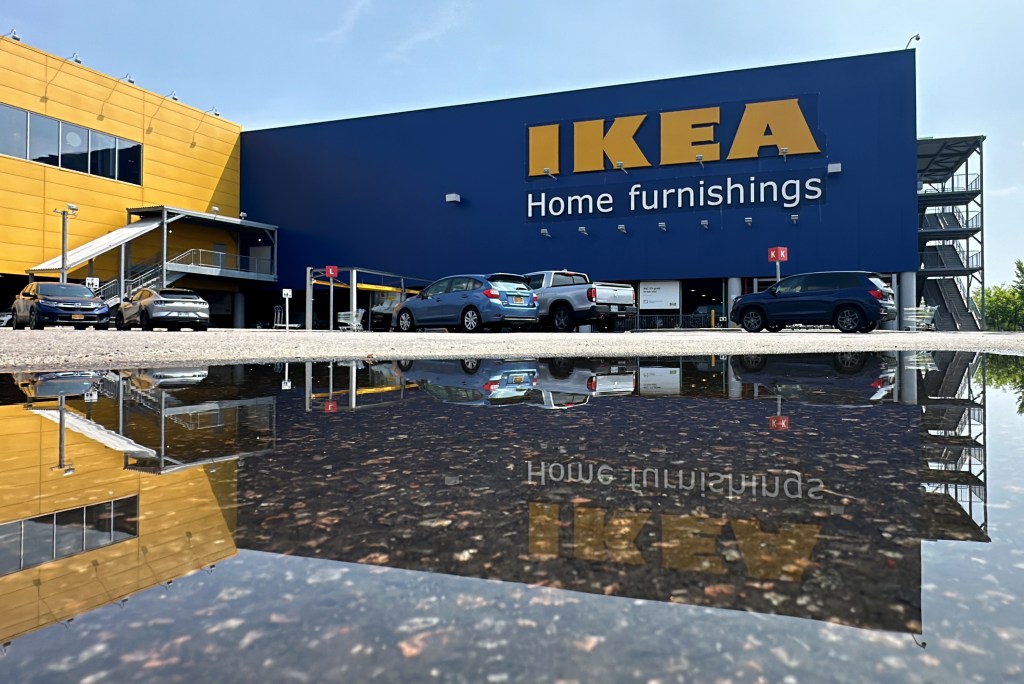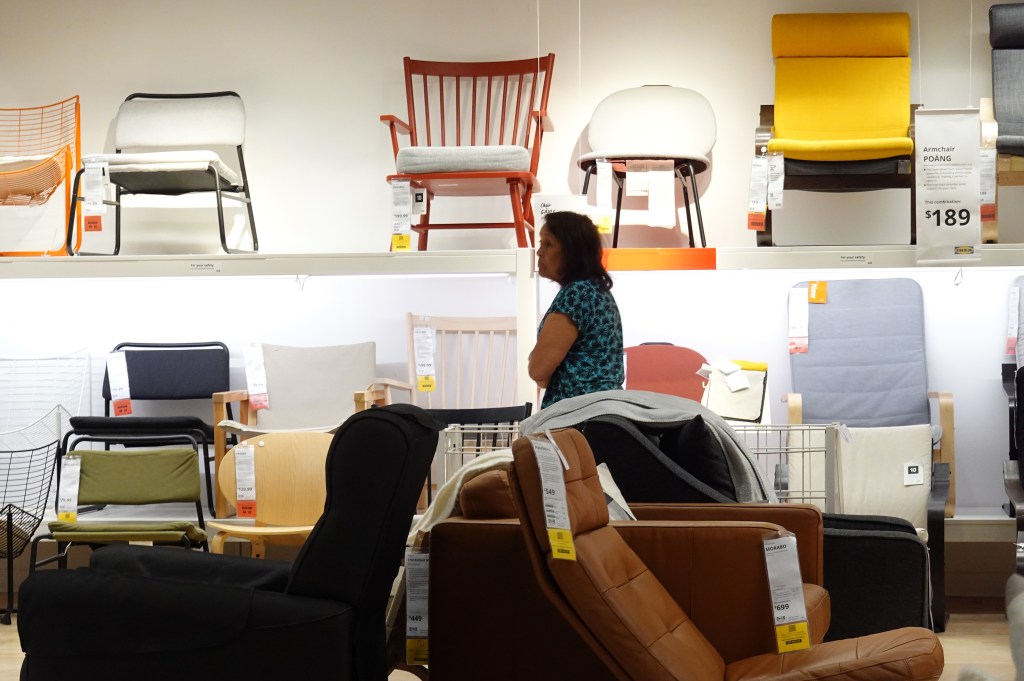IKEA has had to increase prices for certain high-cost items, as businesses begin to transfer the additional expenses from President Trump's tariffs, following months of absorbing the extra costs, according to a report.
In recent years, the home furnishings retail chain has reduced prices on items ranging from bookshelves to bed frames in a bid to attract customers struggling with persistent inflation.
However, the president's tariffs - including duties on furniture that became effective this week - have blocked that route to lower prices.

"Our goal is to keep reducing prices," said Tolga Öncü, the retail manager at Ingka, which manages most of the worldwide IKEA locations.informed the Wall Street JournalHowever, in the world we currently inhabit, sometimes... this becomes very challenging or even unattainable at certain times.
"We need to adjust and transfer some of the rising costs to the customers," he added.
IKEA did not promptly reply to The Post's request for a statement.
Keep yourself informed with the newest updates by signing up for the Morning Report Newsletter
All IKEA locations – including those operated by Ingka and other franchisees – saw a 1% decline in sales to €44.6 billion, approximately $52 billion, for the year ending in August. However, sales volumes increased by 3%.
Several more expensive prices have already been placed on the shelves.
The Uppland sofa from IKEA is now priced at $899, an increase from $849 in August, as reported. The cost of a three-piece oak bedroom set has risen to $1,049, up from $959 two months prior.
Not long ago, IKEApledged to intensify its aggressive price reduction strategy.

Low expenses are essential toIKEA’s “Democratic Design”– a concept where all of its products are intended to be functional, well-made, appealing, and cost-effective.
These principles probably originated from the company's late founder, Ingvar Kamprad – a Swedish billionaire who still traveled in economy class, reused tea bags, and drove an older Volvo even after his company became successful. He passed away in 2018.
"I'm thrifty and I'm proud of my reputation," he once stated.
However, this week, a new set of tariffs were imposed on products crucial to IKEA's operations.

On Tuesday, Trump imposed a 10% tax on wood and timber, along with 25% taxes on upholstered furniture and kitchen cabinets and bathroom vanities. These tariffs are scheduled to increase further at the beginning of next year.
The United States serves as one of IKEA's major markets. Approximately 15% of the products sold by IKEA in the US are produced locally, which makes the company particularly susceptible to the new tariffs.
We can't continue to bear all the costs on our own," Öncü said to the Journal. "However, the major challenge lies in discovering methods to reduce the prices.
IKEA acquires all of its kitchen cabinets sold in the United States from domestic producers, allowing it to avoid the recent tax on these products.
However, it has been working to expand its network of American suppliers amid increased expenses on imported upholstered furniture, such as sofas and chairs.

The company has been seeking to obtain additional products, such as mattresses, from local vendors.
"These tariffs indicate that we are on the correct path regarding exploring opportunities to manufacture more within the United States," Öncü stated.
Other retail companies have also begun to pass on costs related to tariffs. Largeretailers like Walmartand Target has begun increasing prices on certain products, with warnings of additional increases ahead.
US consumer inflation became slightly warmer at 2.9%in August, as per the latest government statistics available. The Bureau of Labor Statistics haspostponed the release of its inflation reportthis month, as the government shutdown reached its sixteenth day on Thursday.
However, economists from Goldman Sachs have cautioned thatAmerican consumers will face the majority of the impact from Trump's tariffs.once they complete their examination of the economy.
US consumers will eventually bear 55% of the tariff expenses, although this impact has been postponed because companies are absorbing a bigger portion of the costs while slowly increasing prices, according to economists in a recent note.